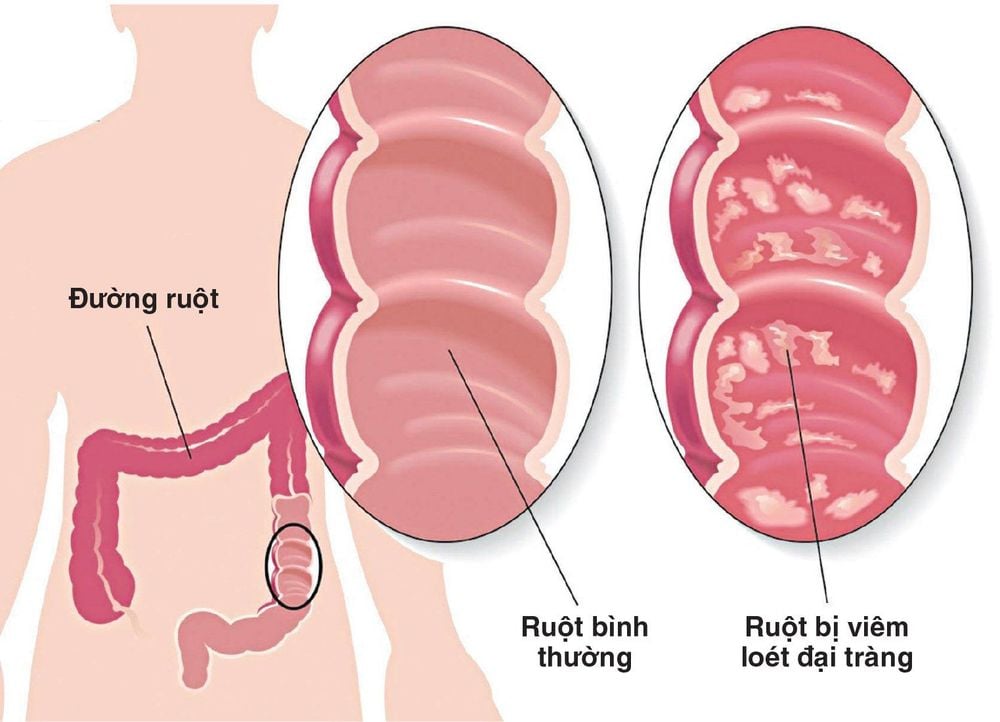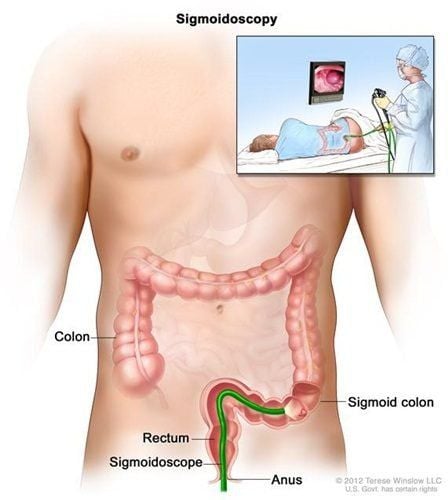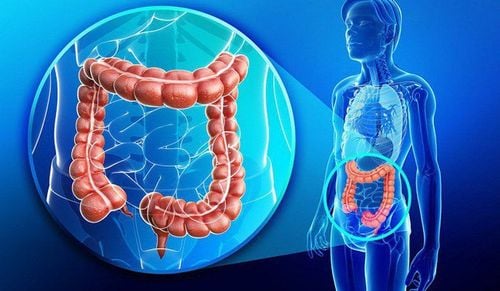This is an automatically translated article.
The article was written by Specialist Doctor I Nguyen Thi Minh Thuyen - Pathologist, Pathology Department - Vinmec Danang International General Hospital.Risk factors are factors that can affect a person's likelihood of getting a disease. Different types of cancer have different risk factors. Many studies have found a number of risk factors that may increase your chances of getting colorectal polyps or colorectal cancer.
1. Modifiable colorectal cancer risk factors
1.1 Being overweight or obese Being overweight or obese increases the risk of colorectal cancer in both men and women, but men are at greater risk.
1.2 Physical Inactivity If you are physically inactive, your chances of getting colorectal cancer are higher. Being more active can help reduce your risk.
1.3 Certain Diets Diets high in red meat (such as beef, pork, lamb or liver) and processed meats (such as hot dogs and some canned meats) increase cancer risk Colorectal.

1.4 Smoking People who smoke cigarettes for a long time are more likely to get colorectal cancer than non-smokers. Smoking is a common cause of lung cancer and many other related cancers.
1.5 Drinking Alcohol Limiting alcohol use to no more than 2 drinks a day for men and 1 drink a day for women can have many health benefits, including reducing the risk of many types of cancer .
2. Unmodifiable colorectal cancer risk factors
2.1 Getting older The risk of colorectal cancer increases as you get older. Younger people can also get the disease, but it's much more common after age 50.
2.2 Personal history of colorectal polyps or colorectal cancer Having a history of adenomatous polyps increases the risk of colorectal cancer. This is especially true if the polyp is large, there are many polyps, or the polyp is dysplastic.
If you have had colorectal cancer, even though it has been completely removed, there is a greater chance of new cancer in other sites of the colon and rectum

2.3 History of inflammatory bowel disease If you have inflammatory bowel disease (IBD), including ulcerative colitis or Crohn's disease, your risk of colorectal cancer is increased.
IBD is a condition in which the colon has been inflamed for a long time. If you have IBD, you may need to start colorectal cancer screening at a younger age and more often.
2.4 Family history of colorectal cancer or adenomas People who have a close relative with a history of colorectal cancer (parents, siblings or children) have a higher risk of developing cancer than those who do not. no history. The cause may be due to genetic factors, general environmental factors such as water source, food, daily living habits.
If you have a family history of adenomas or colorectal cancer, talk to your doctor about the need to be able to start screening before age 45.
2.5 Having an inherited syndrome About 5% of people with colorectal cancer have inherited genetic changes (gene mutations) that run on familial cancer syndromes that can predispose them to the disease.
The most common genetic syndromes associated with colorectal cancer are Lynch syndrome and familial adenomatous polyposis (FAP), but other rare syndromes can also increase the risk of colorectal cancer. .
It is important to identify families with these genetic syndromes. It prompts doctors to recommend screening methods and other preventive measures when people are young.
2.6 Type 2 Diabetes People with type 2 diabetes have a higher risk of colorectal cancer. Both type 2 diabetes and colorectal cancer share some risk factors (such as being overweight and being physically inactive). People with diabetes with cancer also tend to have a poorer prognosis.
Gastrointestinal cancer screening is a scientific and effective measure for early detection of gastrointestinal cancers (esophageal cancer, stomach cancer, colon cancer) and providing a good treatment plan. best. Currently, Vinmec International General Hospital has a package of screening and early detection of cancers of the gastrointestinal tract (esophagus - stomach - colon) combined with clinical and paraclinical examination to bring the most accurate results. maybe.
Please dial HOTLINE for more information or register for an appointment HERE. Download MyVinmec app to make appointments faster and to manage your bookings easily.
Article referenced source: American Cancer Society













